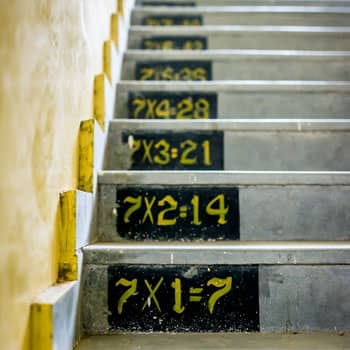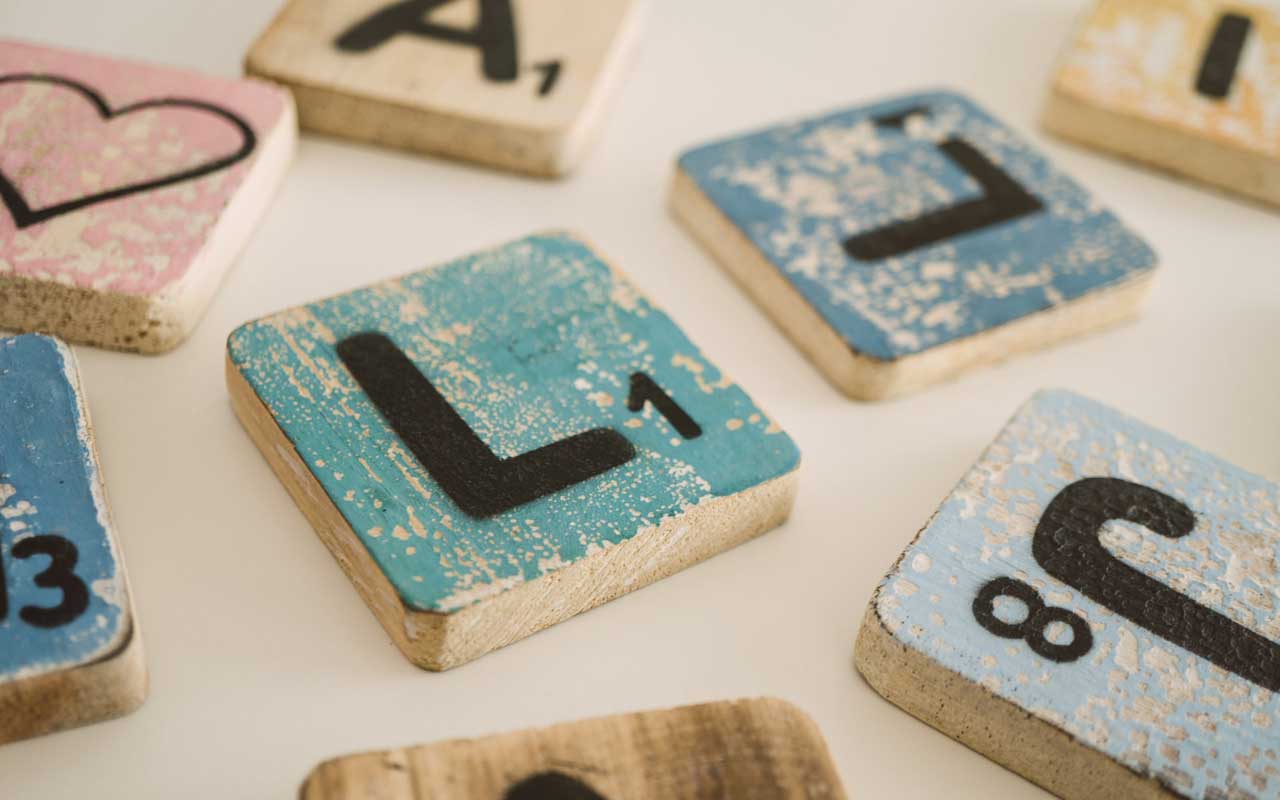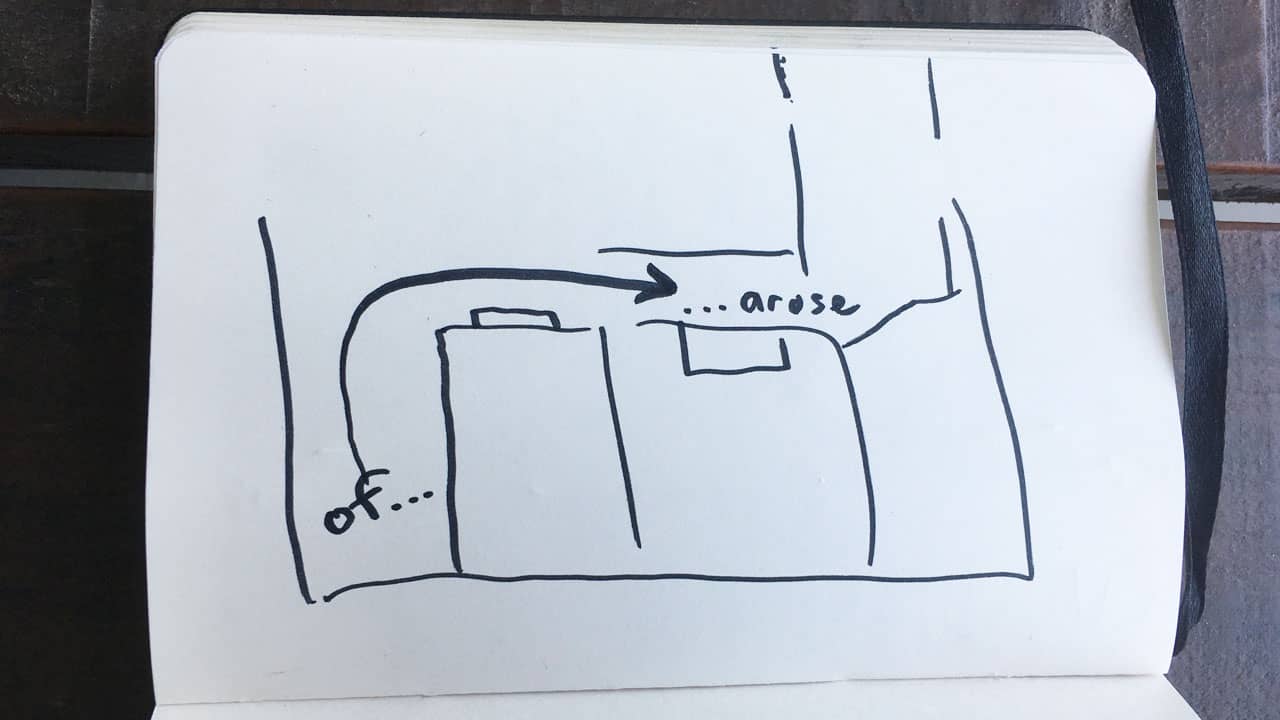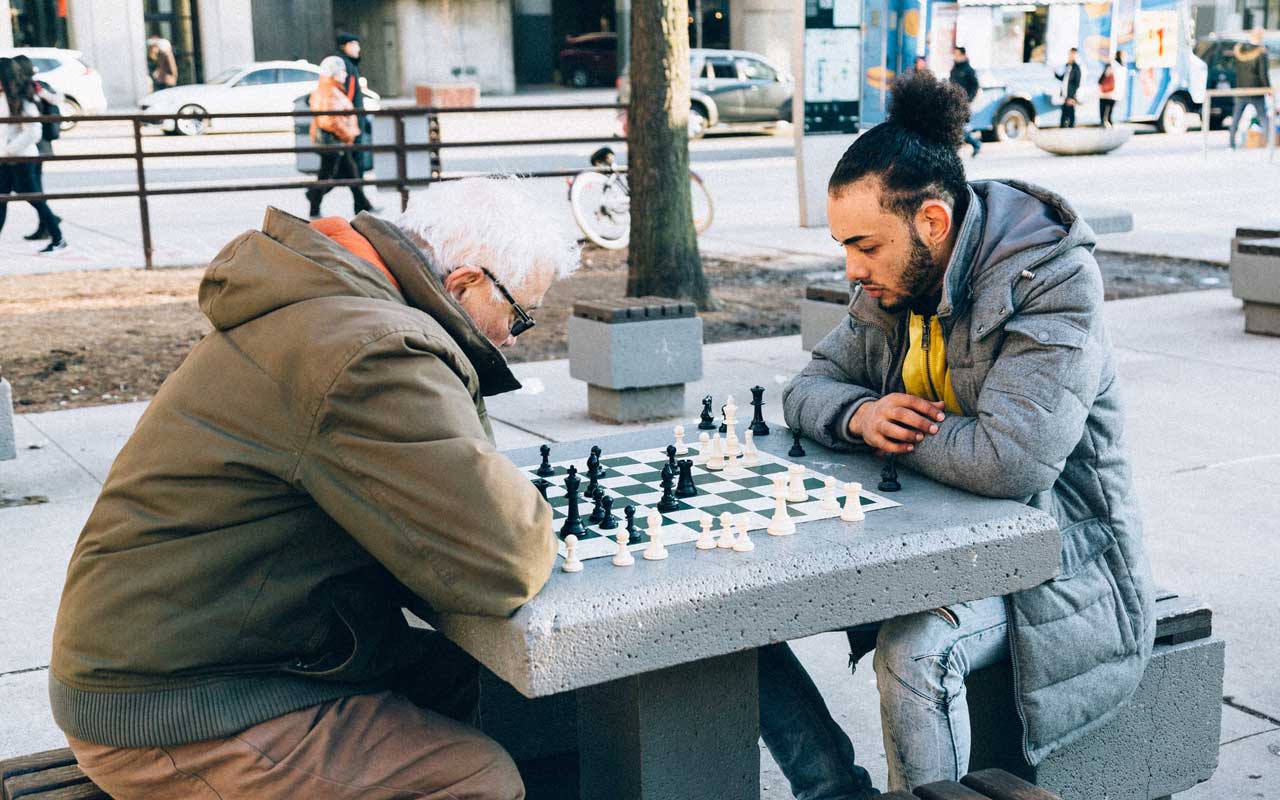Podcast: Download
Subscribe: Apple Podcasts | RSS
 Are you looking for cognitive activities for adults to stimulate your brain?
Are you looking for cognitive activities for adults to stimulate your brain?
I sure am.
As I age, it’s getting increasingly clearer that our cognitive abilities and brain health weaken with age.
Illness, caused by genetics or poor habits challenges cognition and memory too.
Here’s the good news:
Cognitive stimulation activities provide a way to defy this deterioration — helping you improve your attention, memory, and overall mental health.
In this article, we’ll take a brief look at cognitive processes. I’ll also show you 13 stimulating activities for cognitive development that will keep your brain fighting-fit, even as you age.
Some of the activities are simple, especially the top ten you can see on this infographic I created for you:
But there are many more “classic activities” that provide incredible workouts for short term memory and other aspects of cognition.
One in particular is featured up front in this recent video tutorial I created for you:
First, however, I believe it’s useful and important to set the stage by defining what we’re talking about.
By understanding what cognition is, you’ll be better able to decide which activities are most likely to provide you with the greatest fruit along our shared quest for sharper minds and better memory skills.
That’s right. I’m aging myself and sharing the journey with you and regularly studying my own cognition so that I choose only the most optimal cognitive training activities.
Here’s What I’ll Cover In This Post:
What Are Cognitive Processes?
While you were binge-watching a streaming series, a burning smell caught your senses.
You dashed to the kitchen to turn off the oven.
As you cleaned up the mess, your brain made a list of ingredients you need to bake that cake again.
You then drove to the grocery store, bought the ingredients, and returned home to bake again.
What a day!
But it was worth every bite of that oozy, chocolatey delight sitting at your kitchen counter.
Now:
Did you realize you used many of your cognitive skills in the above scenario?
In his 1967 book, Ulric Neisser defined cognition as “how sensory inputs are transformed, reduced, elaborated, stored, recovered, and used.”
What are the Different Cognitive Processes?
Here’s a closer look at the various cognitive skills you use in your daily life. They include attention, memory, logic, reasoning, and visual and auditory processing.
They help you process the world around you.
Attention
Attention allows you to concentrate on a particular activity or stimulus instead of processing everything around you.
Activities such as walking, wearing clothes, and driving require little attention because the repeated practice has made them a part of your routine. But activities like responding to a friend in crisis would require more attention.
Your attention could also be selective to a strong stimulus, letting you focus only on it. For example, you could listen to a podcast on the radio amid noisy traffic or work on your laptop with the TV switched on.
Sensation and Perception
Sensation is the process of receiving information from the environment through your sensory organs — eyes, ears, nose, tongue, and skin.
Perception is the process by which you interpret this information. Past experiences influence your perception and allow you to make sense of the world around you.
Gestalt psychologists believe that we perceive our reality as a whole rather than the sum of different parts. For example, a dotted line (…………….) will be seen as a line and not as separate dots.
Comprehension
To comprehend means to understand and interpret what you read or hear. Your brain decodes the language of what you’ve read and makes connections with what you already know.
For example, you read, “The train left the station and John’s friend was gone forever.” To process this sentence, you need to understand what is left unsaid: John’s friend was on that train.
Memory
Memory is made up of three processes: acquiring, storing, and retrieving information on ideas, facts, images, habits, or events around you. It is the store of all things you’ve learned and retained from your activities and experiences.
Cognitive reserve is the brain’s ability to find alternate ways of getting things done. You can only improve it by performing new tasks and challenging the brain to learn new skills.
That is where cognitive activities for adults can come to your rescue. Some of them even help people with Alzheimer’s and dementia.
13 Powerful Cognitive Activities for Adults
You’ll find plenty of cognitive stimulation activities for adults, including exercise workbooks and several enticing online brain training games and apps.
I’d suggest you stay away from online apps as they may make you good at completing those tasks, but don’t really stimulate your brain. Another reason to avoid digital sources is that social baseline theory demonstrates that cognitive processes are best exercise within our communities.
With that in mind, here are my top recommendations for cognitively stimulating activities, especially for older people. All of these activities will improve your cognitive skills — attention, comprehension, perception, memory, reasoning, and/or processing speed.
1. Mindful Walking
A recent study on mindfulness established that mindfulness-based exercises help elders with mild cognitive impairment improve their daily life.
When you step out for a morning walk, concentrate on sensations like the wind in your hair, your breathing, or the sounds around you.
While the walk keeps you physically active, this mindfulness will help you build your attention span, filter out distractions, and boost your overall cognitive health.
2. Drawing
Drawing or illustration involves the use of cognitive abilities such as perception and memory. A study also suggests that the process of drawing can help older adults fight memory loss.
Observe a complex drawing with multiple colors or layers, and try to replicate it later. Or take in a scene around you and draw it on paper, bringing out all the minute details.
Keep in mind that “drawing” doesn’t mean you have to be artistic. Just explore creating shapes.
You can even trace over existing shapes, something that many fun adult coloring books make possible. No, coloring is not just for kinds. As someone who has created my own coloring books, it is one of many highly stimulating activities for the mind I highly recommend.
3. Counting Letters
Select a paragraph from any book and count the number of times a particular letter appears. This will help you sustain your attention by focusing on one letter for an extended period of time.
In a study on older people, researchers have used this cognitive stimulation activity to measure everyday attention.
4. Color Arrangement
Take a piece of printed cloth and find out how many shades of a particular color are present in it.
Color has cognitive stimulation properties and helps older folks improve their spatial memory.
5. Approximation and Estimation Exercises
Keep two spoons next to each other on a desk. Then move the second spoon away from the first spoon. Now figure out how many spoons you can fit in between them.
This is a handy exercise that adults can do easily to improve perception and information processing abilities.
6. Card Games
Poker, Solitaire, and other card games for seniors can improve cognitive function — especially logical problem solving and memory retention.
Try this card-matching game:
Pick 8 to 12 pairs of identical cards and lay them face down on the desk. Ensure that the pairs are not together. Pick any two cards at a time and see if they match. See how many pairs you can match in five minutes.
Keep increasing the number of pairs, to improve your memory and attention span gradually. If this description feels vague, scroll up and watch the video at the top of the page. I show you exactly how this brain game for powerful mental stimulation is played.
Personally, I play Solitaire pretty much every day. In addition to helping me maintain mental sharpness, it’s also a great way to unwind while catching up on audiobooks or podcasts.
7. Word Games
Try out crossword puzzles, Scrabble, or any other word game that you enjoy.
Here’s another one — finding unrelated words. Pick a random word and think of words that are not related to it. If you pick ‘sky,’ then words like the moon, sun, night, or birds are not allowed.
This exercise will help you improve your comprehension skills. Elderly adults can play this engaging brain game with their family members or caretakers.
Some people might find this pastime a bit childish.
I don’t find that at all personally because time spent on fun for fun’s sake is something not enough of us get. That said, I also have created a set of meaningful ways to improve cognitive function that you can explore.
It’s about variety at the end of the day.
8. Remembering Sequences
Try to remember words in a particular order. For example, list all the fruits you know. After an hour or so, try to remember the fruits in the same order.
This is a classic memory improvement technique. You could do multiple variations such as unknown words, nonsense words, and increased distractions.
9. Number Games
Calculation exercises and number games like Sudoku will keep your problem-solving skills sharp.
Here’s an interesting twist — a license plate game. When you see license plates on vehicles, you could try to figure out the relationship between those numbers. For example, XP4812 on a license plate could be 4 + 4 = 8 and 8 + 4 = 12. Alternatively, 12 * 4 = 48, hence, 4812.
This is an entertaining game that elderly adults can even play from the comfort of their home balconies to improve their memory and processing speed.
10. Board Games
Board games like chess can help you boost your IQ, concentration, and focus.
Get some partners to play with and alternate among Checkers, Clue, Monopoly, or any other board game to increase your creativity and cognitive functioning.
11. Reading
Researchers have proven the power of reading in keeping Alzheimer’s disease at bay. Besides keeping you informed and entertained, it will spark your imagination and exercise your brain.
You could read magazines, fiction, or non-fiction books. To make it more effective, retell the gist of what you read to someone.
12. Physical Exercise
A study by Italian researchers proved that regular physical activity “is a strong gene modulator that induces structural and functional changes in the brain”, leading to improved cognitive skills and wellbeing.
The Alzheimer’s Association says that regular exercise may be a beneficial strategy to lower the risk of Alzheimer’s disease and vascular dementia as well.
Choose a workout routine that you enjoy and stick to it — be it aerobic exercise, resistance training, badminton, or swimming.
13. Creating Memory Palaces
Creating Memory Palaces using the Magnetic Memory Method is an incredible memory technique that boosts your long term memory.
To make it simpler on your brain, always draw them out before using them in your mind.
Then, when learning a new language, mentally walk around your home. Use associations to place vocabulary and phrases related to shopping (in that language) on your kitchen counter, or the words related to travel on your sofa.
This will help you store the information in your long-term memory and recall it easily at will. You can also try mind mapping to activate yet another level of your memory and creativity when learning something new.
Why are Cognitive Processes Important?
Cognitive processes let you:
1. Understand sensory inputs:
Your brain transforms the sensations and information around you into signals for you to understand and act on. No matter what learning style you might have (or think you have), sensory learning is key.
That’s how you instinctively drop a hot piece of coal or turn when someone calls your name, or push a person onto the sidewalk when you see a vehicle dangerously veering towards them.
2. Elaborate information:
When you recall information, sometimes your brain fills in the missing pieces.
For instance, while buying groceries, you may remember an item that needs to be restocked but wasn’t on your list. Also, at times when you narrate incidents to your friends, you may add details that weren’t part of the original memory.
3. Remember and recall information:
Your short-term memory stores information, such as the office address for your upcoming interview. And your long-term memory helps you remember your childhood home address or a language you learned at age five.
4. Contextualize information and solve problems:
Cognitive processes link past information to current information and help you make decisions to solve problems. Your attention to your surroundings, memories, understanding of language, biases, and judgments all contribute to how you interact with your environment.
For example, you rush to turn off the oven when there’s a slight burning smell because you know the consequences of what might follow if you don’t.
Now, here’s another important question:
Do Cognitive Processes Decline as You Age?
The answer is – yes – just as much as your physical function weakens with age.
Some cognitive skills start to fade with age, especially your memory and attention.
How does cognitive decline manifest itself?
Here’s how:
- Life experiences that come with age (like your knowledge or vocabulary) remain stable. But your abilities such as riding a bicycle start to decline.
- Your childhood memories remain relatively intact, but forming new ones gets difficult. It may get tougher to remember where you kept the house key or spectacles, or the name of the new neighbor you met yesterday.
- Older adults may show a slower reaction time (the speed at which we respond to stimuli).
- Paying attention to multiple activities such as watching TV while chopping vegetables might become difficult.
- Solving problems and puzzles will take more time than when you were younger.
Progressive neural decay leads to neurodegenerative conditions such as Parkinson’s disease, dementia, and Alzheimer’s disease.
People with Mild Cognitive Impairment (MCI) are considered to be at an increased risk of Alzheimer’s disease or dementia. In their study, researchers Roberts and Knopman proved that 15% to 20% of people aged 65 or older have MCI.
Diseases like Alzheimer’s and dementia are incurable, and a healthy cognitive reserve is the only way to combat these diseases. Some people who are diagnosed with mild-to-moderate dementia or Alzheimer’s disease opt for psychological intervention, including Cognitive Stimulation Therapy.
Cognitive Stimulation = Get a Super-Fit Brain
Keeping your cognitive processes sharp is a critical part of successful aging. Keeping mentally stimulated is so key because research has shown how important a fit memory is for making the best possible decisions in life.
All these brain-stimulating activities, especially the powerful Memory Palace technique and a variety of brain exercises, will help you improve your cognitive performance effectively — even as you go about your day-to-day life and social activities.
If you want to learn more about how to improve your memory (including how to use a Memory Palace), sign up for your free memory improvement kit.
If you believe, as I do, that having a sharp mind for life is important, I encourage you to make time for all of the activities listed above.
I know it can sound like a lot. But with a bit of scheduling, it’s easier to fit in than it might seem.
The important thing is to get started and then develop ways to keep yourself going.
The good news is that these activities are all so much fun, they quickly become part of your every day life. The rewards of mental fitness will soon follow, and that makes it irresistible to dive in and do even more.
Related Posts
- Memory Games: 22 Diversions That Give Your Brain a Boost
Ever find yourself in the middle of a sentence and unable to find the word…
- 15 Best Brain Games for Adults (Online & Offline) to Advance Your Cognitive Abilities
Looking for brain games for memory improvement? Great, Here's a list of the best with…
- 15 Secrets To Expanding Your Mind And Accessing More of Your Brain
You want to expand your mind but don't know how. These 15 secrets show you…

















2 Responses
I read the article on improving cognitive abilities. I find them very promising and useful. I thank Anthony Metivier for his wonderful research and essay on the topic.
Thanks, Dr. Reddy.
Anything else you’d like to see covered on this blog?